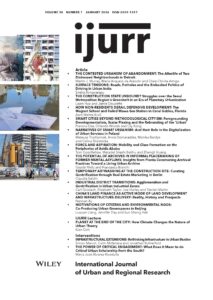The global governance of urban greenspaces increasingly recognizes the importance of citizen and NGO involvement, since top-down management often fails to address non-governmental stakeholders’ diverse perceptions, preferences and demands. Research on public service co-production and environmental stewardship emphasizes the role of internal and extrinsic motivations in facilitating co-production, but overlooks value-driven and organizational motivations. This article explores why and how citizens and NGOs develop a sense of commonality and co-produce urban greenspaces. Data were gathered through in-depth interviews with engaged citizens, NGOs and government representatives in Beijing, China. The findings reveal that NGOs and citizens were motivated by the interplay of value-based and agency-based factors. Altruistic and biospheric values, attachments to greenspaces and a sense of responsibility enhanced the perceived salience of these issues and motivated citizens and NGOs to co-produce. In addition, NGOs viewed co-production as a strategy to achieve environmental management goals requiring government support and agreement. Low efficacy did not deter participation; instead, citizens and NGOs sought greater resources, power and influence in decision-making related to greenspace planning and management through co-production. These findings suggest that policy innovations should foster environmental values and a sense of responsibility, empower citizens to increase efficacy, and integrate environmentally-oriented perspectives into greenspace planning and management.
Details
Written by:
Luquan Liang, Jennifer Day, Sun Sheng Han
Digital Object Identifier (DOI)
https://doi.org/10.1111/1468-2427.70028
About DOI

